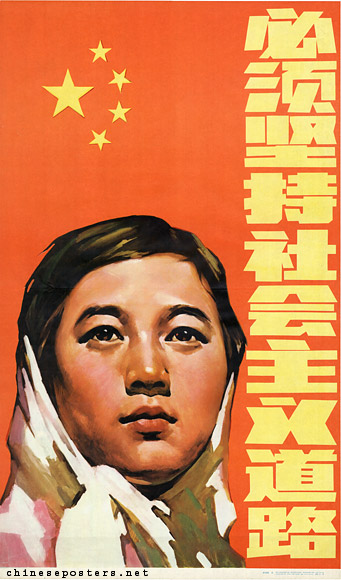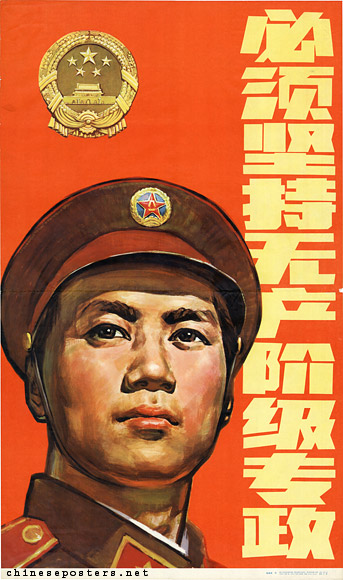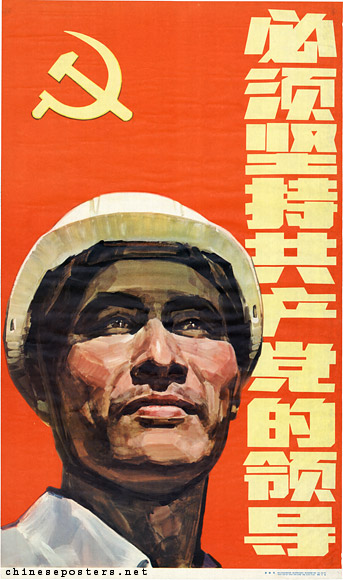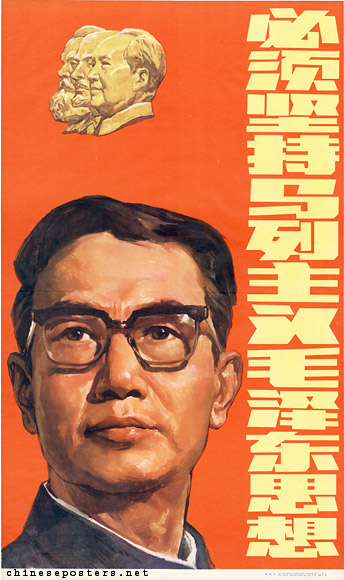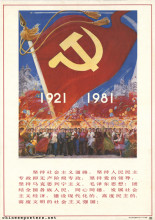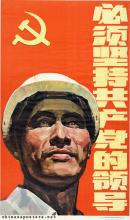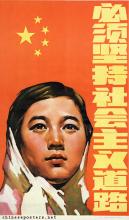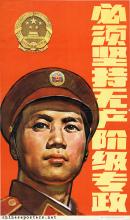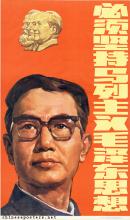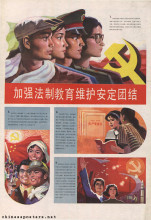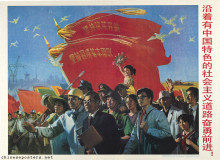Deng Xiaoping introduced the "Four Basic Principles", or "Four Cardinal Principles" (si xiang jiben yuanze, 四项基本原则), in March 1979. They are:
- We must keep to the socialist road
- We must uphold the dictatorship of the proletariat
- We must uphold the leadership of the Communist Party
- We must uphold Marxism-Leninism-Mao Zedong Thought
We must keep to the socialist road, 1984
We must uphold the dictatorship of the proletariat, 1984
In Deng’s opinion, these principles were basic prerequisites for achieving modernization, while at the same time ensuring that the Party had measures to fall back on when undesired developments took place in the course of the reforms. In 1982, the second of the principles was changed to "upholding the people’s democratic dictatorship".
We must uphold the leadership of the Communist Party, 1984
We must uphold Marxism-Leninism-Mao Zedong Thought, 1984
The principles were written into the "Preamble" of the Constitution of the PRC, which was adopted in December 1982. They remain in force until the present day. Conservatives still find great comfort in the pinciples’ ability to stifle reforms that may be a threat to the Party’s power. Even in the 21st century, the principles are emphasized to dispell any doubts that may exist about the Party’s basic nature.
Erik Eckholm, "Beijing Journal: A Maoist Hero’s Ghost Tilts With Falun Gong", The New York Times on the Web, 30 May 2001
Kwok-sing Li (editor) & Mary Lok (translator), A Glossary of Political Terms of the People’s Republic of China (Hong Kong: The Chinese University Press 1995)
